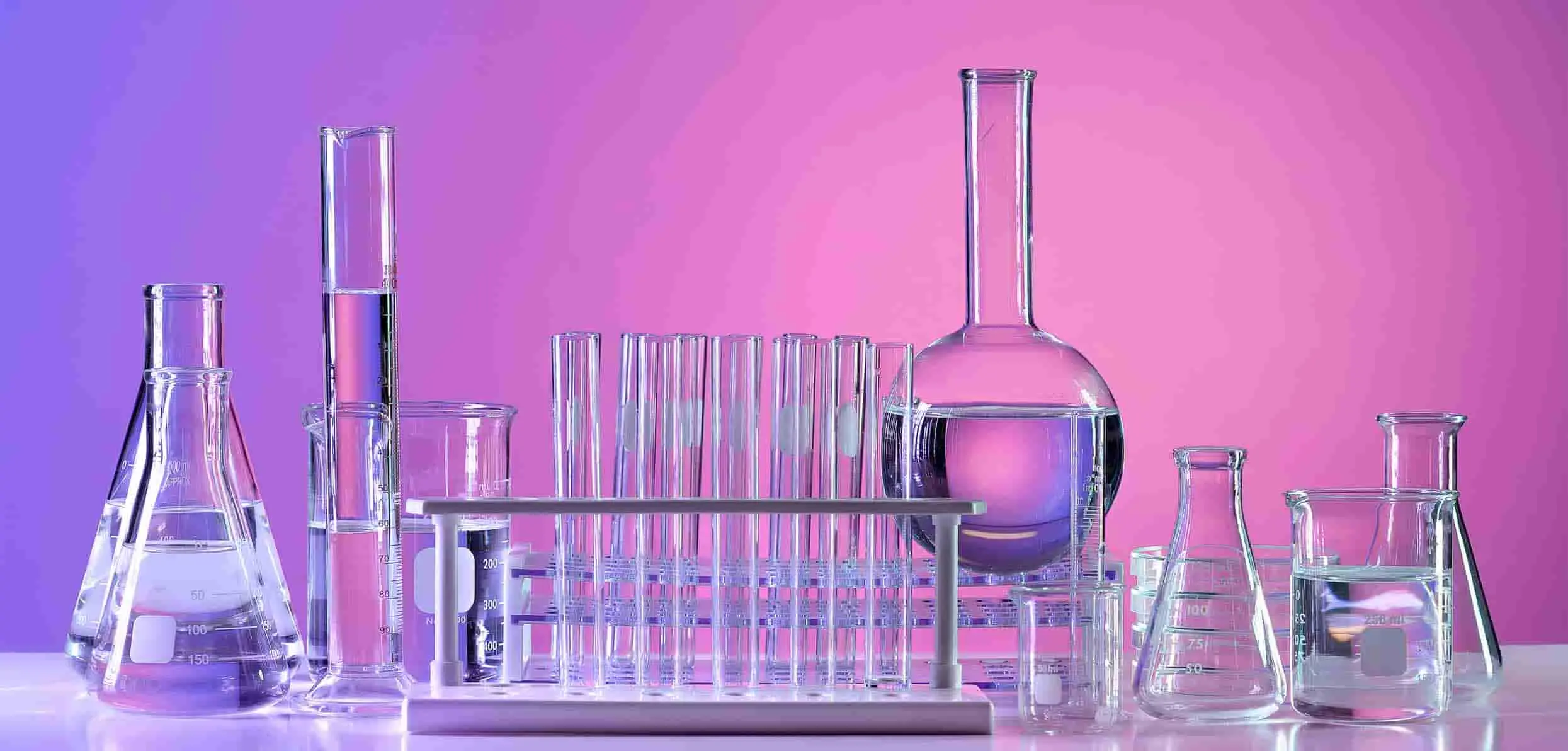
In the months or years leading up to menopause, you might start experiencing the effects of hormonal fluctuation such as hot flashes, low libido, vaginal dryness, and insomnia. When you decide that you want to reduce these symptoms, healthcare providers can prescribe bioidentical hormones or HRT.
Hormone replacement therapy is the most studied and effective form of treatment to date for hot flashes and night sweats. Scientists have yet to unearth a more effective remedy for menopause symptoms than giving the body the estrogen, progesterone, and testosterone it desires in order to improve the profound mind-body shifts that occur during menopause.1-5
This therapy shouldn’t be complicated or scary, after all, it is an incredibly effective natural remedy for menopause symptoms that simply restores the estrogen, progesterone, and testosterone that women are producing at lower levels as they age.
But our societal norms place aging and menopause, and even the discussion of hormonal fluctuations, in a taboo category. Sort of like they do with the conversation regarding menstrual complications! Additionally, because some outdated research continues to get amplified on the internet, there is unnecessary fear associated with taking control of your menopause journey and trying HRT.
It is estimated that only one in four women who could benefit from HRT actually try it. Women are scared as they hear negative reports, often from talking to friends and reading antiquated articles, about it.2 It doesn’t have to be this way, but disinformation continues. The main hormone involved in this procedure is estrogen however, progesterone and testosterone should be included in the discussion.
Personalized hormone treatments. For you.

Estrogen:
An estrogen is a group of steroid hormones that act to promote the development and maintenance of female characteristics in the body. Bioidentical estrogen hormones are used for contraception, menstrual complications, or to treat menopause symptoms. Estrogen naturally decreases during perimenopause, but in an irregular fashion and can cause menstrual complications. Most women don’t recognize that hormone fluctuations caused by perimenopause are the culprit for their sudden changes in mood, weight, skin and so much more.
Taking this therapy early can improve memory, concentration, and cognition. It may also help protect against long-term health risks like cardiovascular disease, stroke, cancers, type2 Diabetes, and more.
Estrogens can bind to and stimulate estrogen receptors that are found inside most human cells. Bioidentical estrogen hormone compounds bind to an estrogen receptor and signal the same effects in your body. These compounds include some plant hormones and specialized, ‘bioidentical’ medications.
Our understanding of estrogen, progesterone, and testosterone’s role in human biology is only getting started. What we do know is that estrogen, progesterone, and testosterone receptors regulate a host of processes including those that can lead to menstrual complications. Ongoing research has helped medical professionals to design therapeutic strategies for a whole host of symptoms and diseases.
The knowledge scientists have gained over the past six decades, together with advances in research techniques, have allowed us to develop more personalized strategies to prevent and treat conditions when our bodies create less estrogen, progesterone, and testosterone1
The main type of estrogen found in women is called ‘estradiol.’ Estradiol can be made within the body and is a product of cholesterol. Since estradiol is synthesized from cholesterol, we could call all estrogens ‘synthetic.’ Lots of other compounds can create a signal after binding to the estrogen receptors, including bioidentical medications. These hormones are called ‘bioidentical hormones.’
Winona provides estrogen, progesterone, and testosterone that is chemically identical to the kind made by women’s ovaries, and is described as “bioidentical.” Shipped by Winona’s private pharmacies it comes as a pill or cream.
Progesterone:
Once a woman hits her mid to late 30’s she can enter perimenopause, and progesterone production starts to decline. Once she reaches menopause, circulating progesterone levels are so low, they are similar to levels normally seen in men. Research shows that progesterone supplementation can improve brain function as well as breast, cardiovascular, and nervous system health and decrease the risk of uterine cancer.
It might surprise you to hear that progesterone acts as a natural antidepressant, and can enhance your mood and relieve anxiety. It actually stimulates the brain’s ‘feel-good,’ center. So it makes sense then that when progesterone levels drop with menopause, anxiety can become a major menopause symptom.5 Researchers have shown that progesterone appears to be the most potent anti-anxiety hormone for menopausal women.6,7
While there are many causes of anxiety – your kids, your job, or something else – progesterone hormone deficiency is the main factor leading to moodiness, brain fog, and depression during menopause. When excessive anxiety occurs daily, it becomes disabling. When progesterone levels are restored to normal with bioidentical progesterone HRT medication, women have noticed anxiety relief, decreased irritability, and less nervous tension.5,6,7
Amongst the various benefits of progesterone, one is that it helps with the sleep problems so often associated with menopause. After hot flashes, the next most troublesome symptom of menopause is delayed or interrupted sleep. Researchers found that taking 300 milligrams (mg) of progesterone daily at bedtime improved the quality of deep sleep.9 Not only will it make you sleepy but progesterone can reduce the severity of night sweats, which can awaken women from an otherwise sound sleep.8,9
Anti-Aging is a big question at menopause. Who doesn’t want to live longer and age gracefully? But, if we want to live longer we should also try to look and feel good doing it! While we can’t reverse the aging process, we can slow it down.
HRT is regarded as a cornerstone of anti-aging efforts.10,11 Currently, women can expect to live about ⅓ -½ of their lives in a state of sex-hormone deficiency (not enough estrogen, progesterone, or testosterone) if they don’t take hormone replacements. That is a huge problem!
Skin aging, as well as decreases in muscle, bone density, sexual desire, and intellectual activity, can lead to mood disorders osteoporosis, cognitive decline, dementia, heart problems, and painful sex. Bio-identical hormones can give you back the many benefits of estrogen, progesterone, and testosterone. HRT using bioidentical hormones can directly contribute to longevity, and lead to a significant improvement in your quality of life.11-14
Estrogen & Progesterone effects on another hormone, insulin, can help both with weight loss and longevity. Too much insulin is known to speed up the aging process. Estrogen, progesterone, and testosterone can reverse insulin’s effects and slow the aging that you may be noticing. By helping to control stress, progesterone can again be considered an anti-aging hormone.
Testosterone:
Although many think of it as a ‘male’ hormone, testosterone is also an important female hormone that plays a critical role in women’s health.4 Testosterone maintains normal metabolic function, muscle and bone strength, urogenital health, mood, and cognitive function.4 A deficiency in testosterone can lead to low sexual desire, arousal, and orgasm.
Tiredness, depression, headaches, cognitive problems, osteoporosis, and lean body tissue loss are additional complications from low testosterone.4 Testosterone levels peak in a woman’s ’20s and start to drop years before perimenopause. By menopause, most women’s levels are half of the peak levels.5 Winona offers DHEA, a testosterone precursor, to gently yet effectively replace the testosterone that can be missing in the menopausal woman.
Long Term Disease Prevention:
Estrogen, progesterone, and testosterone can improve sleep, protect memory & cognitive functions, and even reduce the incidence of breast, uterus, ovarian, cervical, & colon cancers.2,3,11,14 In combination, these hormones can also reduce hot flashes, night sweats, and many other side effects of menopause.1-14
History:
Before 2000…
It was common for women with menopausal symptoms to be prescribed estrogen supplements by their medical provider. Pills, patches, and creams were common estrogen therapies that proved to be very effective at reducing menopausal symptoms and preventing bone weakening and osteoporosis.
In 2002…
The first studies were published by the Women’s Health Initiative (WHI). The WHI was initiated in 1991 and lasted until 2005. It was a unique study that enrolled more than 160,000 women, but the data was not properly evaluated, and many of the results of the study have been dismissed as inaccurate.
The preliminary WHI study results raised the concern that estrogen treatment, or HRT, increased the risk of heart disease, stroke, and cancer. This finding was the opposite of what was expected by researchers based on previous publications. As a result of the WHI report, and almost overnight, women stopped being prescribed estrogen, progesterone, and testosterone as a remedy for their menopausal symptoms.
The results of the study adversely impacted the way doctors have prescribed HRT for Menopause and how women think about this for the past 20 years. This is an unfortunate result. As few as 5% of symptomatic menopausal women are currently offered bioidentical hormones as HRT by their providers. We have written a summary of the WHI results (HERE), but want to stress that this therapy has numerous benefits and is proven to be safe and effective.11-14
Personalized hormone treatments. For you.

Benefits of Estrogen Hormone Replacement Therapy:
Bone: HRT can prevent the bone loss that is accelerated at menopause. There have been fewer cases of bone fracture due to weaker bones in women undergoing HRT. The evidence of Estrogen treatment to prevent bone loss is excellent.
Vagina: HRT lessens vaginal dryness, pain, and discomfort during intercourse.
Bladder: HRT strengthens the muscles of the bladder which can reduce the frequency of urinary tract infections, and the risk of incontinence and other bladder problems.
Hot Flashes (Vasomotor):HRT is the most effective way known to reduce the frequency and the intensity of hot flashes and sweats that can significantly reduce the quality of life for many menopausal women.
Mood: HRT can curtail the frequency and severity of mood swings and decrease depression.
Brain: Concentration and focus are improved with HRT, and early research indicates that estrogen treatment may decrease the risk of dementia if provided at peri or menopause stages.
Skin: Elasticity, thickness, and moisture levels in the skin are increased with HRT which results in the reduction of common skin changes associated with aging such as wrinkles or sagging.
Heart Disease: The most recent studies using micronized progesterone (the same type provided by Winona) instead of medroxyprogesterone used previously suggest additional protection from heart disease.
Breast Cancer: Recent studies using micronized progesterone suggest a reduced risk of invasive breast cancer.
Colon cancer: Fewer women develop colon cancer on HRT than those who are not.
Diabetes: Fewer women develop Type 2 diabetes when on HRT.
Mortality: Fewer women die during the 5 years of HRT than those that are not
Risks of Estrogen Treatment:
Breast: If there is a personal history, or very strong family history, of breast cancer, women should not take estrogen. However, it is very important to understand the actual risk.
Endometrium: If there is a personal history, or very strong family history, of endometrial cancer, women should not take estrogen. There was no increased risk of endometrial cancer with HRT in recent studies however, it is very important to understand the risk.
Stroke: This can likely be reduced by using transdermal patches or creams rather than oral estrogen replacement.
Pulmonary Embolism: The risk of pulmonary emboli is reduced by using a transdermal patch or creams rather than oral estrogen replacement.
Summary
While menopause is a normal phase of life, there are ways to treat the often-chronic symptoms that result from menopause. Winona encourages women to try various treatment options whether it is Hormone Replacement Therapy, diet, or lifestyle changes (or all three) to identify what works best for them. Remember, menopause is a positive beginning, with the opportunity to take preventive action against major health risks associated with the decreasing hormones associated with menopause.
Whether experiencing severe or minor symptoms, women can embrace their evolving bodies by providing the nutrients their body needs like estrogen, progesterone, and testosterone. Bioidentical hormones as HRT can enable them to move through this sometimes precarious phase with grace and wellness. Let the Winona women’s health care experts work with you to replace the missing ingredients to help you feel, and stay young and healthy.
“This article is for informational purposes only and does not constitute medical advice. The information contained herein is not a substitute for professional medical advice. Always talk to your doctor about the risks and benefits of any treatment.” Reference:
https://www.healthline.com/health/progesterone-for-menopause
https://www.medpagetoday.org/endocrinology/generalendocrinology/43123
https://www.healthywomen.org/your-health/progesterone/facts-to-know
https://www.hotzehwc.com/2018/04/anxiety-relief-with-bioidentical-progesterone/
https://www.healthline.com/health/progesterone-for-menopause
https://plattwellness.com/blogs/news/3-benefits-of-progesterone-for-anti-aging



